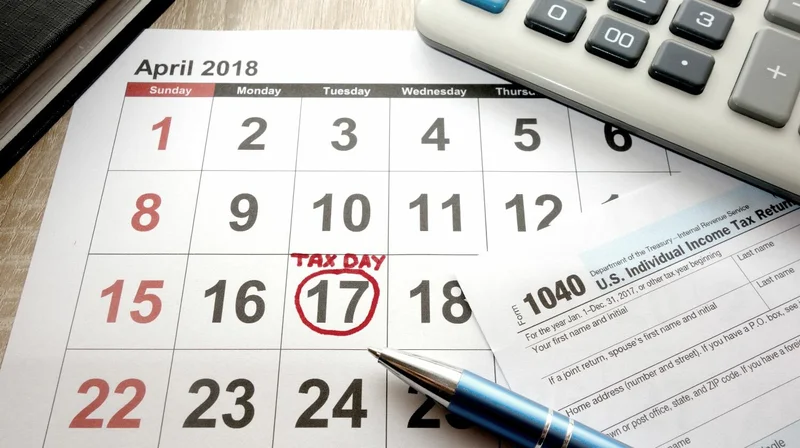The Stimulus Check Mirage: Why Our Financial System is Stuck in the 20th Century
Let’s be honest with each other. The frantic searching, the rumors of a $2,000 check popping up on social media, the desperate refreshing of the IRS’s “Where’s My Refund?” page—it all feels a bit… archaic, doesn’t it? You can almost hear the screech of a dial-up modem in the background as you punch in your Social Security number for the tenth time. We’re living in an age of instantaneous global communication, of AI that can write poetry, of private companies launching rockets to Mars. Yet, when it comes to the simple, critical act of getting money from the government to its people, our system behaves like a relic from a bygone era.
The current chaos is a perfect case study. There is no fourth federal stimulus check coming. The deadlines to claim the old COVID-era payments have all passed, with any unclaimed funds vanishing back into the U.S. Treasury. Instead, what we have is a confusing, fragmented mess. New Jersey has its ANCHOR program. New York, Pennsylvania, and others have one-off “inflation relief” payments. Are we getting a stimulus check in November? Track IRS refund, inflation payment, rebate. Meanwhile, political proposals for things like a “tariff rebate” or a fanciful “DOGE dividend” are floated like trial balloons, creating more noise than signal.
When I look at this landscape, I don't just see a news story about tax policy. I see a massive, systemic failure of imagination. We’re arguing about the color of the band-aids while ignoring the fact that the patient’s entire circulatory system is obsolete. The real question isn’t, “Are we getting another check?” The real question is: Why, in 2025, is this Rube Goldberg machine of paper checks, direct deposits that take 21 days, and state-by-state patchwork programs the best we can do?
Our Economic Steam Engine
The infrastructure we use for public finance is the equivalent of a steam engine in the age of fusion. It’s clunky, leaky, and shockingly inefficient. Think about it. The IRS, for all its power, updates its refund status tool just once a day, overnight. A mailed check can take six to eight weeks. Scammers thrive in the information vacuum, sending out fake texts to exploit the confusion. This isn't a flaw in the system; this is the system.
This is the kind of problem that reminds me why I got into technology in the first place—because we can build something so much better. Our current process is a historical artifact, built for a world of paper ledgers and postal mail. It’s like trying to stream a 4K movie over a telegraph wire. The proposals we hear from politicians, like Senator Hawley’s American Worker Rebate Act, are well-intentioned attempts to bolt a turbocharger onto that steam engine. But what we really need is a whole new engine.

What if we stopped thinking in terms of “stimulus checks” and started thinking about an economic nervous system? Imagine a system that uses real-time economic indicators—in simpler terms, live, anonymized data on things like consumer spending, regional unemployment, and inflation—to understand the health of the economy on a daily basis. A system that could respond with surgical precision, not with a clumsy, one-size-fits-all check that takes months of congressional bickering to approve. Is a specific industry in a specific state struggling? The system could deliver targeted support instantly. Is inflation spiking because of a supply chain issue? It could provide a temporary, targeted consumer rebate to ease the pressure.
This isn't science fiction. We have the data. We have the processing power. We have the secure digital payment platforms. The speed of this is just staggering—it means the gap between an economic problem and its solution could shrink from months of political theater to mere hours of automated, intelligent response.
A System That Breathes
Of course, building such a system would be a monumental undertaking. The questions of privacy and data security are not just important; they are paramount. We would need to architect a new digital social contract, one with unbreakable safeguards to ensure that a system designed to help can never be used to control. This is the great ethical challenge of our time, but it’s a challenge we must meet, because the alternative is to remain stuck in this cycle of confusion, inefficiency, and inequity.
The patchwork of state programs is proof that the need is there. New Jersey is trying to help homeowners and renters. Colorado and Georgia are trying to offset inflation. They’re all building their own lifeboats because the mothership is too slow to turn. But what if the mothership was as agile as a speedboat? What if our national economic policy could breathe, expanding and contracting with the real, lived experience of its citizens?
We have the tools to build a financial infrastructure that is responsive, fair, and, most importantly, resilient. An infrastructure that treats economic support not as a clumsy, emergency handout, but as an elegant, stabilizing force. The social media rumors and the political soundbites are distractions. They keep us focused on the mirage of a single check, when we should be demanding a fundamental upgrade to the entire OS.
It's Time to Reboot the Treasury
Forget the check. The real prize is a 21st-century system for the 21st-century economy. We wouldn’t accept a healthcare system that still uses leeches, so why do we accept a financial distribution system that runs on the technological equivalent of steam power and snail mail? The debate we should be having isn't about a one-time payment of $1,400 or $2,000. It should be about architecting a future where economic friction is a thing of the past. That’s the real paradigm shift, and it’s long overdue.
